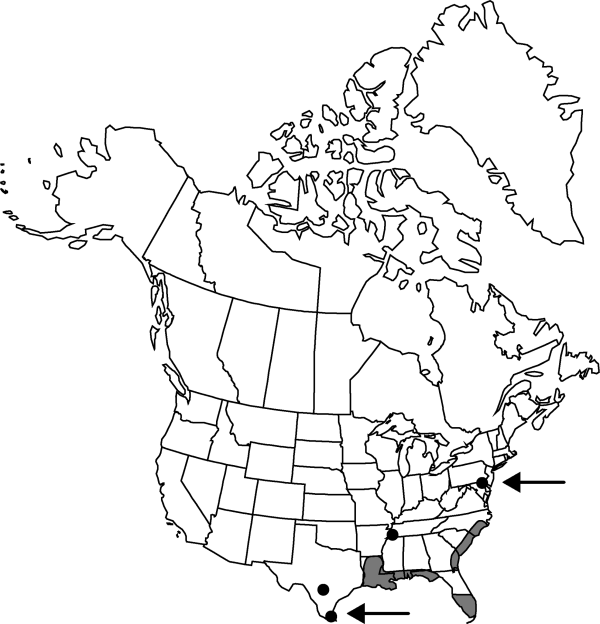Alternanthera paronychioides
Voy. Distr. Diam. 2: 439. 1833.
Herbs, perennial, 1–8 dm. Stems prostrate, villous, glabrate. Leaves sessile; blade elliptic, ovate-rhombic, or oval, 0.6–2.5 × 0.3–1.1 cm, apex acute or obtuse, villous, soon glabrate. Inflorescences axillary, sessile; heads white, globose, 0.5–1 cm diam.; bracts less than 1/2 as long as tepals. Flowers: tepals monomorphic, white, lanceolate, 3–5 mm, apex acuminate, without rigid, spinose tips, hairs not barbed; stamens 5; anthers 3–5, globose; pseudostaminodes ligulate, shorter than filaments, margins entire or dentate. Utricles included within tepals, stramineous, orbiculate to rounded-obovate, 2–2.3 mm, apex truncate. Seeds lenticular, 1.2–1.5 mm.
Phenology: Flowering spring–late fall, year-round in far south.
Habitat: Ballast ground, swamps, sandy places, limestone near salt water
Elevation: 0-10 m
Distribution

Introduced; Ala., Del., Fla., Ga., La., Miss., N.J., N.C., Pa., S.C., Tenn., Tex., Mexico, West Indies, Central America, South America, Asia, Africa, Pacific Islands
Discussion
Plants identified as Alternanthera paronychioides var. amazonica Huber have been collected on salt flats in central Louisiana. The specimens I have seen are not sufficiently distinct to warrant varietal recognition.
Selected References
None.